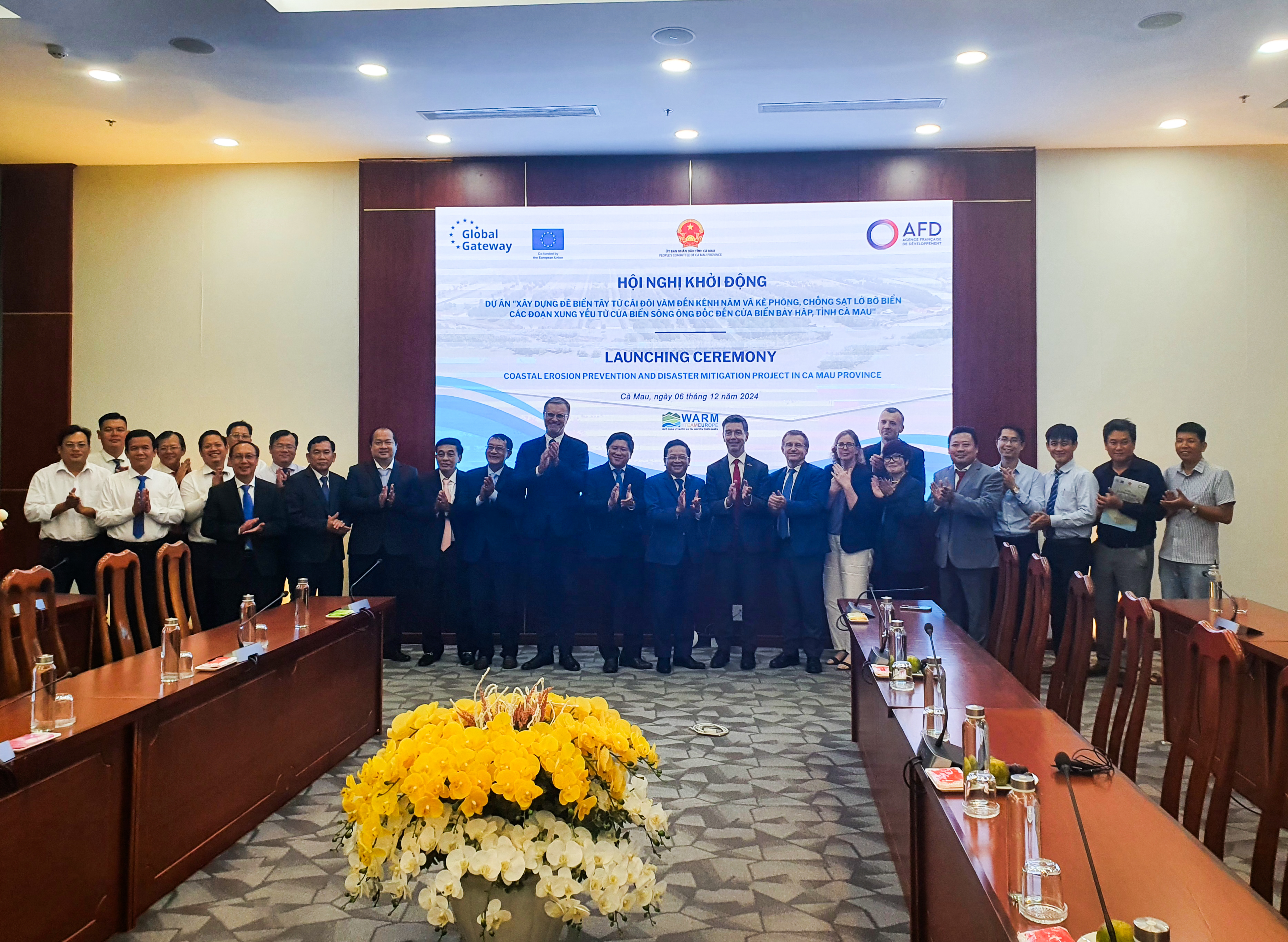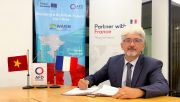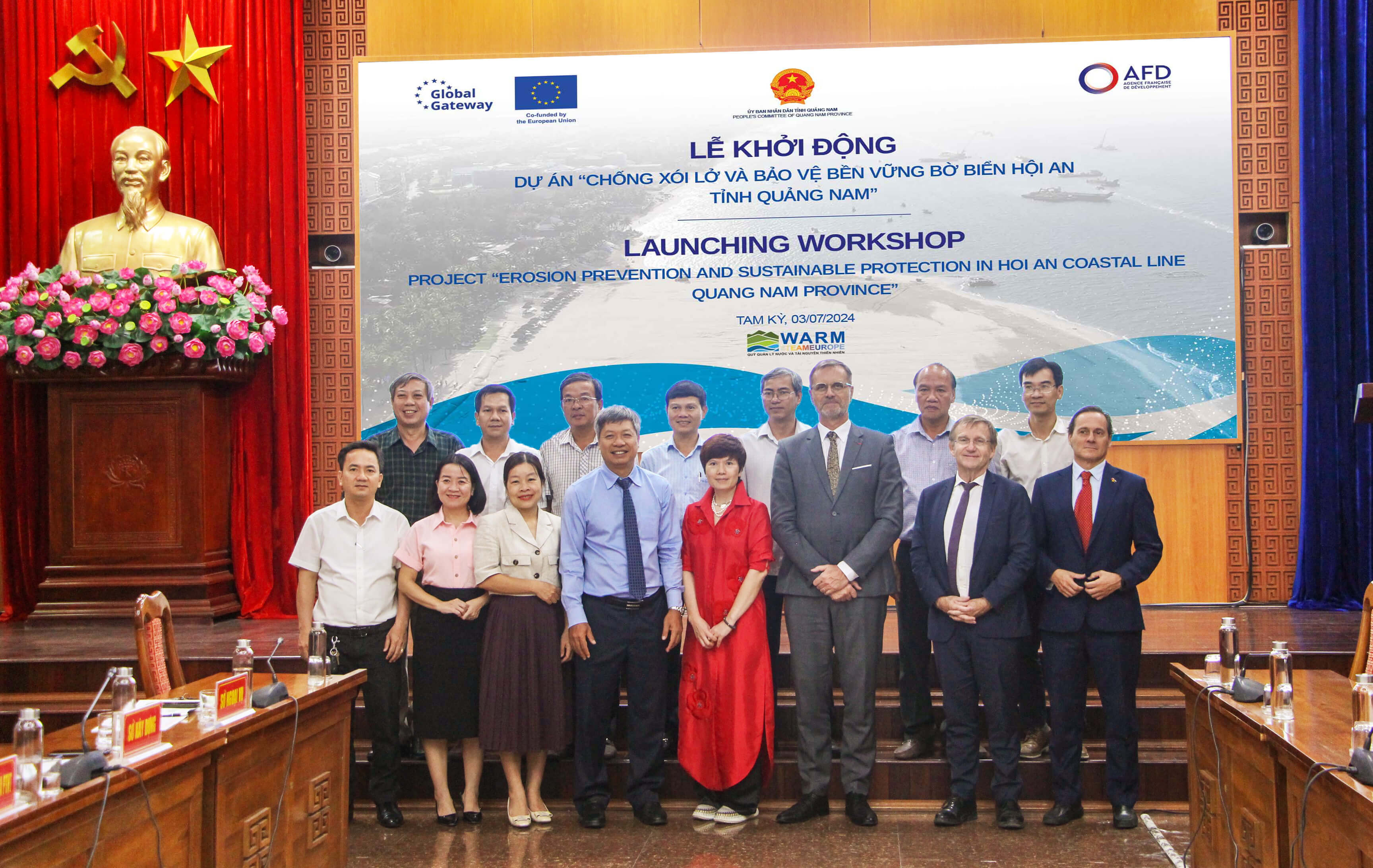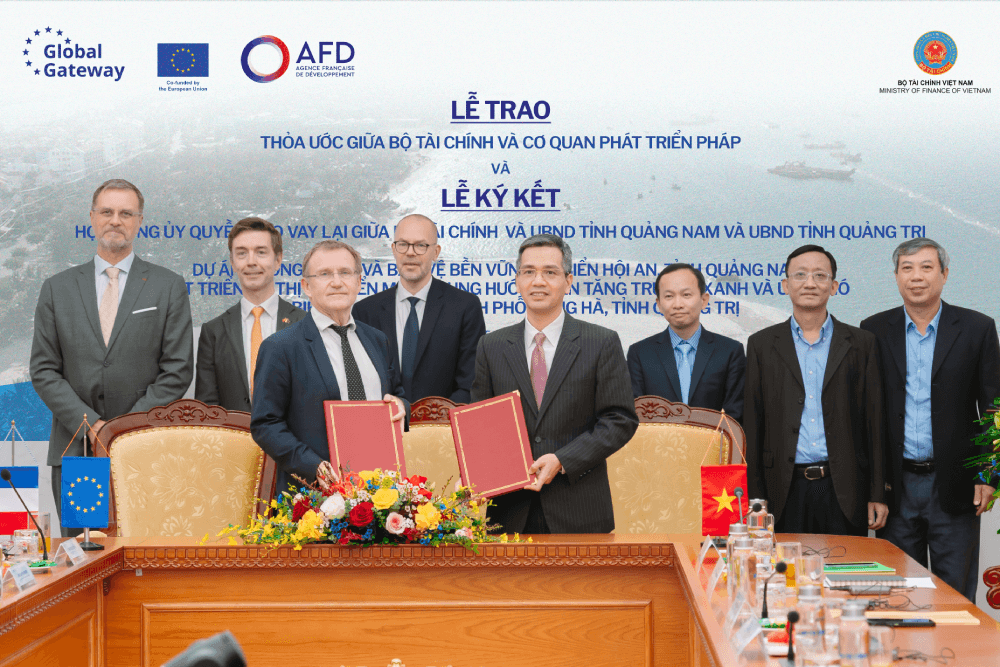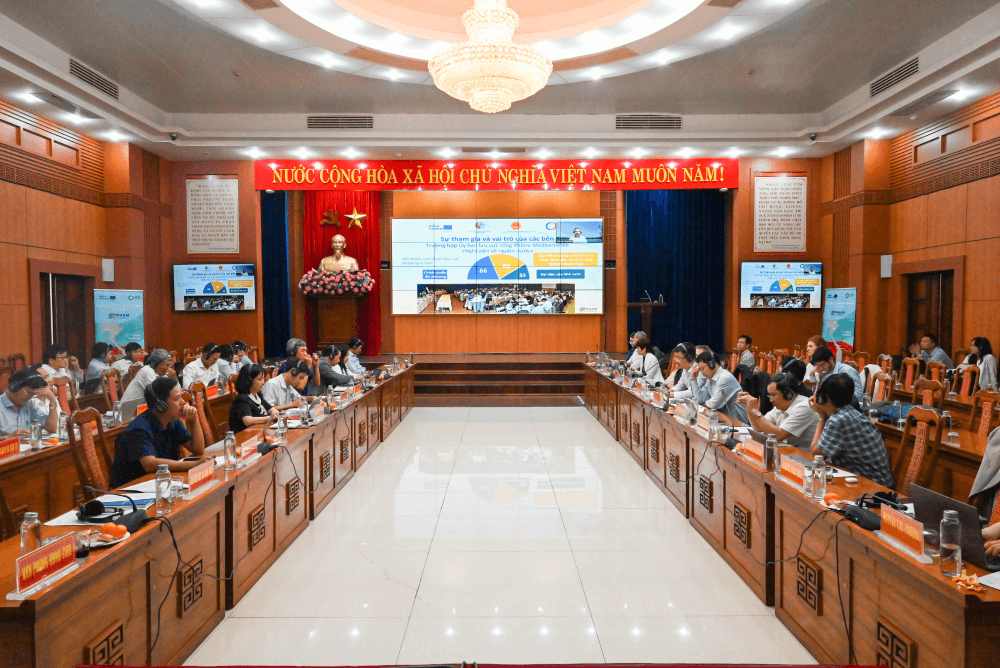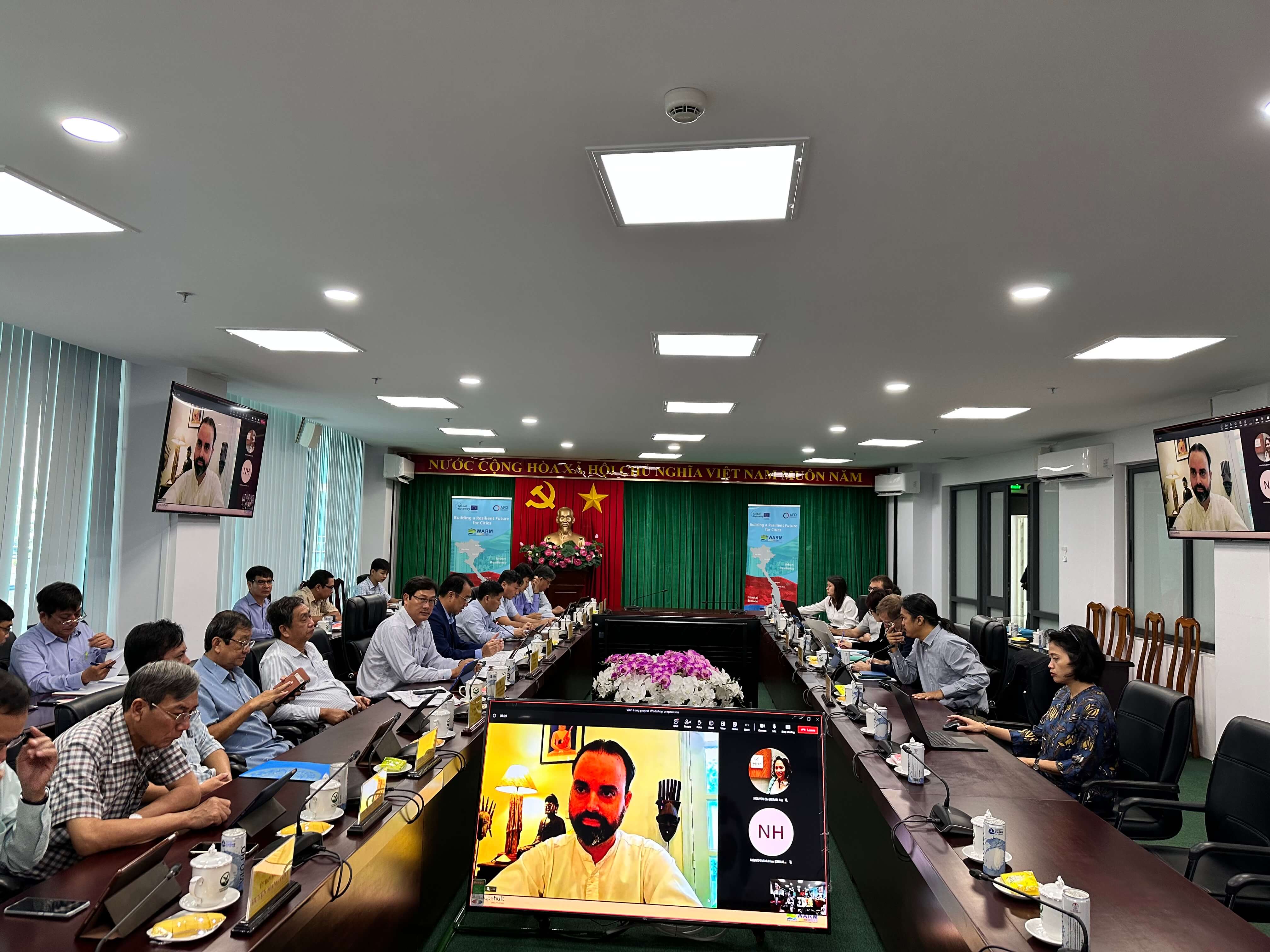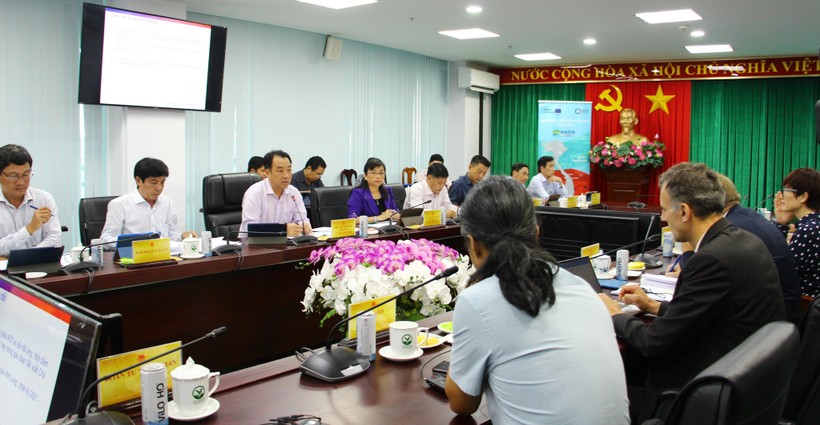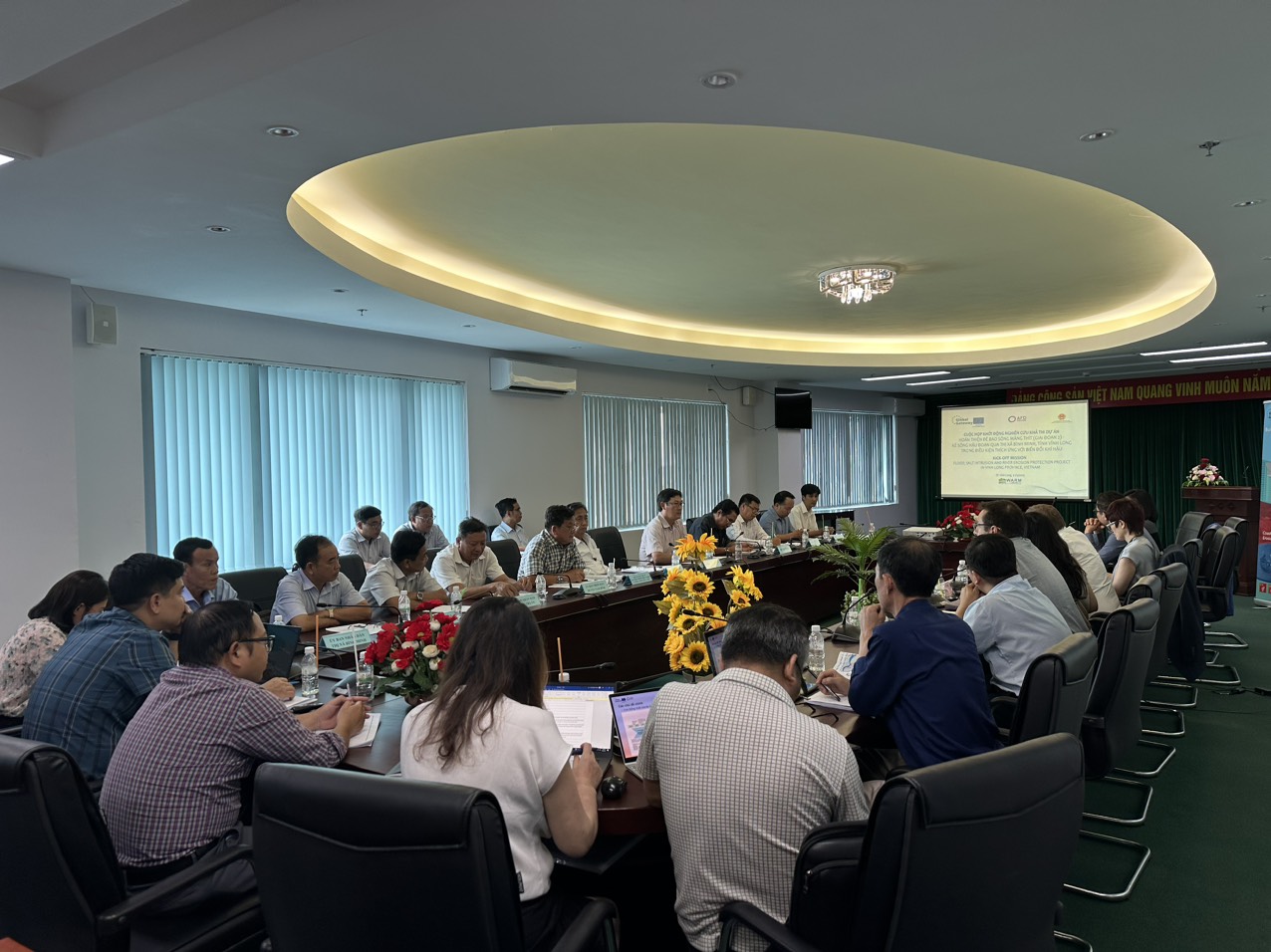NEWS & EVENTS
Final workshop - Feasibility study “Nga Bay green and resilient city project in Mekong Delta, Hau Giang province” project
On December 12, 2022, at the office of the People’s Committee of Hau Giang province, Vi Thanh city, under the framework of the project “Green city development, adaptation to climate change, Nga Bay city, Hau Giang province, the Mekong Delta region (Vietnam)”, a final workshop on the final review of the feasibility study “Nga Bay Resilient City Project in Mekong Delta – Hau Giang Province (Vietnam)” was held, funded by the WARM (Water and Natural Resources Management) Facility. Attending the workshop were representatives of Hau Giang Provincial People’s Committee, the Project Management Board and the delegation of the French Development Agency (AFD) in Vietnam.
The final workshop made conclusions on the designs and feasible options for the project items including the construction and completion of the wastewater system and treatment plant (WSTP), embankment, landscape planning and green infrastructure.
The design of the WSTP is developed based on the results of wastewater sample testing and the wastewater drainage planning map under the general planning of Nga Bay city, in compliance with national standards on wastewater requirements and design standards for wastewater networks and treatment plants, while applying advanced technologies to minimise emissions. The manhole system, wastewater pumping station, and service pipeline system, when connected and operated, will help collect and treat domestic wastewater for residents in the core urban area, to avoid discharging directly into the environment, that polluting the soil and groundwater, and concurrently limiting the construction of many treatment stations, to make the project more effective.
The embankment/dike design proposals are all developed based on a thorough study by the consultant managed by AFD, including topography, geology, hydrology and river surface, and the ability to withstand the impact of waves generated by boat daily operations, design space as well as related clearance costs. The recommendations suggest combining urban landscape improvement for the embankment/dike and the surrounding space to ensure the drainage of water from inside the city, especially in the rainy season, and to be consistent with the overall planning of the area, increasing public space and quality of living environment for the city. Regarding the green infrastructure pilot model at Xang Thoi lake and its infrastructure, AFD’s main approach is to adjust the design and develop a pilot model of green infrastructure, adding water infiltration and drainage functions for public spaces along the lake and to collect rainwater, filter, and temporarily store water to reduce peak discharge of the drainage system to reduce flooding. When completed, the pilot model will help increase community participation to support the local government in maintaining green infrastructure, and create a common space to organise outdoor events/activities (such as cycling, playing sports, etc.) for the local Residents.
.jpg)
Overview of the workshop
Continuously, the AFD consultant presented the environmental and social management impact assessment report, when implementing the above sub-projects.
The following social benefits are expected to be achieved upon completion of the project:
- Help reduce the city’s flooding, especially in the rainy season, thereby also reducing diseases such as typhoid, cholera, dengue fever, etc. during and after the flood; reduce damage to property and furniture of households; and disruption of livelihoods during the rainy season, protecting people’s lives.
- Improve people's health by reducing water pollution and improving water quality. For women living near the embankment area: it helps avoid diseases caused by polluted flood water; No need to work hard to raise/relocate property before the water rises, clean up the house after the flood…
- Improve the quality of life for people by creating public green spaces for the community to serve as places for sports, entertainment and meeting.
- Help upgrade and improve the urban infrastructure system to attract investment.
Based on the impact assessment reports on environmental and social management as well as the demand from Hau Giang province, AFD proposes technical assistance funded by the WARM Facility, aiming at three main objectives: 1) Increasing the project sustainability by enhancing implementation and operational capacity; 2) Addressing challenged issues and improve the environment to facilitate informed decision-making regarding infrastructure development, climate change adaptation, and vulnerability reduction; 3) Enhance knowledge for leaders, officials and people of Nga Bay city in particular and Hau Giang province in general about climate change as well as solutions to adapt in accordance with local circumstances.
When completed construction and put into use, the project “Green city development, adaptation to climate change, Nga Bay city, Hau Giang province, Mekong Delta region (Vietnam)”, funded by AFD, aims for three purposes:
-
Support for resilient urbanisation, in response to challenges such as climate change and sea level rise,
-
Support the green urban development of Nga Bay city, prevent urban pollution, improve people's quality of life,
-
Support the region's sustainable economic development and the city'slience to climate change.
The project is expected to be implemented by the end of 2023 on the occasion of the 20th anniversary of the establishment of Hau Giang province.
The content of this publication falls under the sole responsibility of the AFD and does not necessarily reflect the opinions of the European Union.
555 views






